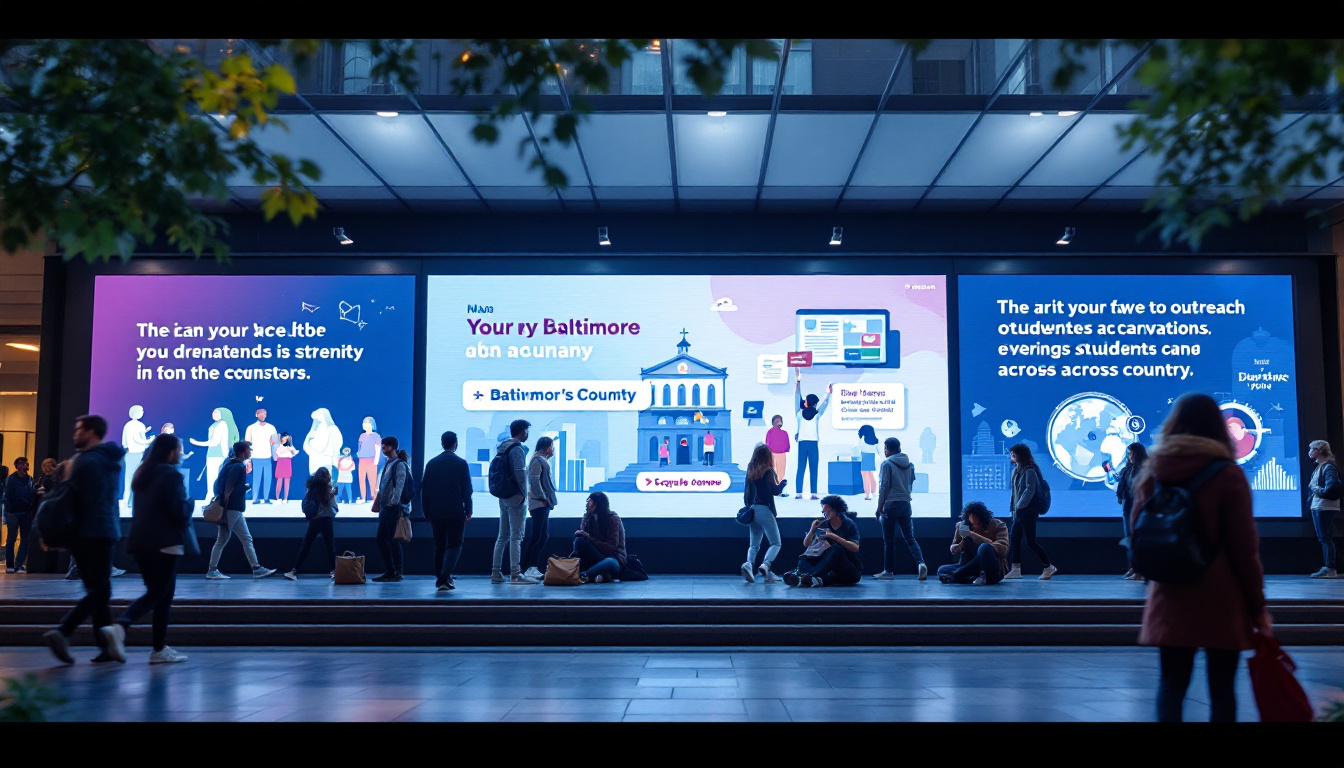10 Things Every Baltimore, MD Business Should Know About PPC

Pay-per-click (PPC) advertising is an essential strategy for businesses looking to gain visibility and attract customers in the competitive market of Baltimore, MD. Understanding the nuances of PPC can set your business apart from competitors. Here are ten critical aspects every business in Baltimore should know about PPC.
Why PPC is essential for Baltimore, MD businesses
PPC advertising provides an instant way to generate traffic to your website. Unlike traditional advertising, which may take time to show results, PPC allows businesses to see immediate results from their campaigns. For Baltimore businesses, this means more exposure and potentially more sales.

Moreover, the geographical targeting capabilities of PPC platforms allow you to reach local customers effectively. Businesses can tailor their ads to appear only to users searching for products or services in Baltimore, maximizing the relevance of each click. This localized approach not only enhances the chances of conversion but also fosters a sense of community engagement, as customers feel more connected to businesses that cater specifically to their needs.
Finally, PPC is a flexible advertising approach. It allows businesses to adjust their strategies in real time based on performance metrics, ensuring that marketing budgets are spent effectively. This adaptability is crucial as market conditions change rapidly. For instance, if a particular ad is performing exceptionally well, businesses can allocate more budget towards it, while underperforming ads can be paused or restructured without significant loss.
Benefits of PPC for Local Businesses
One of the most significant advantages of PPC is its cost-effectiveness. Baltimore businesses can set their budgets according to their financial capabilities, allowing for more straightforward management of advertising expenses. This is particularly beneficial for small to medium-sized enterprises that may not have the extensive marketing budgets of larger corporations. By utilizing PPC, they can compete on a more level playing field, reaching potential customers without the need for hefty upfront investments.
- Immediate results and visibility
- Highly targeted local advertising
- Flexibility to adjust marketing strategies
- Measurable ROI through analytics
Additionally, PPC campaigns can be finely tuned to target specific demographics, interests, and behaviors, allowing businesses to hone in on their ideal customer profiles. For example, a local restaurant in Baltimore can create ads that specifically target food enthusiasts within a certain radius, showcasing daily specials or unique menu items. This level of precision not only enhances the effectiveness of the ads but also improves the overall customer experience by delivering relevant content that resonates with the audience's preferences.
Furthermore, the integration of PPC with other digital marketing strategies, such as search engine optimization (SEO) and social media marketing, can amplify the overall impact of your marketing efforts. By driving traffic through PPC while simultaneously building organic search presence, Baltimore businesses can create a comprehensive online strategy that maximizes visibility and engagement across multiple platforms. This holistic approach ensures that businesses not only capture immediate interest but also build lasting relationships with their customers over time.
Common misconceptions about PPC
Even though PPC is a highly effective marketing tool, several myths surrounding its implementation can mislead businesses. One common misconception is that PPC is only suitable for large businesses with significant budgets. This is false; small to medium-sized businesses in Baltimore can thrive using PPC with strategic planning. In fact, many local businesses have successfully leveraged PPC to reach their target audience without breaking the bank. By focusing on specific keywords and demographics, these businesses can create tailored campaigns that yield high returns on investment.
Another myth is that once a PPC campaign is launched, it requires little to no monitoring. In reality, ongoing optimization is essential for PPC success. Regularly reviewing performance metrics allows businesses to refine their strategies for maximum effectiveness. This includes adjusting bids, testing ad copy variations, and analyzing click-through rates to ensure that the campaign is not only reaching the right audience but also engaging them effectively. Consistent monitoring can reveal insights that lead to improved ad performance and reduced costs over time.
Addressing the Myths
Setting unrealistic expectations is another misconception. Many businesses believe they will skyrocket to the top of search results overnight. However, PPC requires time for careful planning, execution, and ongoing tweaking based on data gathered. It's important to understand that while PPC can produce immediate visibility, the most successful campaigns are those that evolve through continuous learning and adaptation. Businesses should also consider the competitive landscape, as the presence of other advertisers can impact the effectiveness of their campaigns.
- PPC is only for large businesses - false.
- Once launched, PPC runs itself - also false.
- Instant success is guaranteed - unrealistic expectation.
Moreover, another prevalent myth is that PPC is a one-size-fits-all solution. In truth, the effectiveness of PPC campaigns can vary significantly based on industry, target audience, and specific business goals. Each campaign should be customized to align with the unique needs of the business and the preferences of its customers. This includes selecting the right platforms, crafting compelling ad copy, and utilizing appropriate targeting options to maximize reach and engagement.
Additionally, many businesses underestimate the importance of landing pages in their PPC efforts. A well-designed landing page that resonates with the ad's message can significantly improve conversion rates. It is essential to ensure that the user experience is seamless, with clear calls to action and relevant content that meets the expectations set by the ad. By focusing on both the ad and the landing page, businesses can create a cohesive experience that drives results and enhances their overall PPC strategy.
How to allocate your PPC budget effectively
Setting an appropriate budget for PPC advertising entails more than just picking a number. Businesses need to consider multiple factors, including the cost per click (CPC) in their specific industry, the lifetime value of customers, and overall marketing goals. Understanding these elements can help businesses make informed decisions that align with their financial capabilities and growth aspirations.
In Baltimore, different industries may have varying average CPCs. Hence, conducting thorough research is vital. Once a baseline budget is established, businesses should focus on optimizing ads to ensure high click-through rates (CTR). This involves not only selecting the right keywords but also crafting compelling ad copy that resonates with the target audience. A/B testing different versions of ads can provide insights into what works best, allowing for continuous improvement and better budget utilization.
Strategies for Budget Allocation
A well-rounded budget strategy involves distributing funds across various PPC platforms. While Google Ads is popular, other platforms like Bing Ads or social media PPC can also yield positive results. Each platform has its unique audience and advertising features, which can be leveraged to maximize reach and engagement. For instance, Facebook Ads allows for detailed audience targeting based on user interests and behaviors, which can be particularly effective for niche markets.
- Identify key performance indicators (KPIs) for your ads
- Allocate budget to campaigns showing tangible results
- Set aside a portion for experimental campaigns to find new opportunities
In addition to these strategies, businesses should regularly review their PPC performance metrics to adjust their budget allocation accordingly. Utilizing tools like Google Analytics can provide deeper insights into user behavior and conversion rates, enabling businesses to pinpoint which campaigns are underperforming and require additional investment or reevaluation. Furthermore, seasonal trends should also be taken into account; certain times of the year may warrant increased spending on specific campaigns that align with consumer behavior, such as holidays or major sales events.
Finally, consider collaborating with PPC experts or agencies that can offer specialized knowledge and experience. They can help refine your strategies, optimize your campaigns, and ensure that your budget is being spent efficiently. By staying informed about the latest PPC trends and best practices, businesses can continually adapt their approach, ensuring that their advertising efforts remain competitive and effective in a rapidly changing digital landscape.
The role of keywords in PPC success
Keywords are the backbone of any PPC campaign. Selecting the right keywords impacts the visibility and effectiveness of your ad. For businesses in Baltimore, focusing on long-tail keywords that reflect local intent can lead to more qualified traffic.
Additionally, the use of negative keywords can prevent ads from showing up for irrelevant searches, saving valuable budget expenses. Continuous keyword performance analysis is needed to identify which keywords are successfully driving conversions.
Researching and Selecting Keywords
Using tools like Google Keyword Planner can help identify high-performing keywords relevant to your business. Understanding competitors’ keyword strategies can also provide insights on potential opportunities and gaps in the market.
- Focus on local long-tail keywords.
- Implement negative keyword strategies.
- Utilize keyword research tools for optimization.
How PPC fits into your overall marketing strategy
PPC should not exist in isolation within your marketing efforts. It complements other strategies such as social media marketing and content marketing. A cohesive approach that integrates PPC into your broader marketing activities can enhance brand awareness and drive engagement.

For example, using remarketing strategies through PPC can target users who have already interacted with your business website, keeping your brand top-of-mind. This repetition can lead to higher conversion rates as potential customers become more familiar with your offerings.
Creating a Comprehensive Marketing Strategy
To effectively integrate PPC into your marketing strategy, regularly analyze all marketing channels' performance. This ensures that each channel supports others to build a unified brand presence.
- Align PPC with social media campaigns.
- Utilize data from PPC to inform content marketing strategies.
- Monitor the performance of PPC alongside SEO efforts.
In conclusion, understanding these ten essential aspects of PPC can significantly enhance the marketing effectiveness for businesses in Baltimore, MD. By leveraging the right strategies, addressing misconceptions, and integrating PPC into an overall marketing plan, businesses can maximize their return on investment and foster long-term growth.

As a Google Ads expert, I bring proven expertise in optimizing advertising campaigns to maximize ROI.
I specialize in sharing advanced strategies and targeted tips to refine Google Ads campaign management.
Committed to staying ahead of the latest trends and algorithms, I ensure that my clients receive cutting-edge solutions.
My passion for digital marketing and my ability to interpret data for strategic insights enable me to offer high-level consulting that aims to exceed expectations.





























